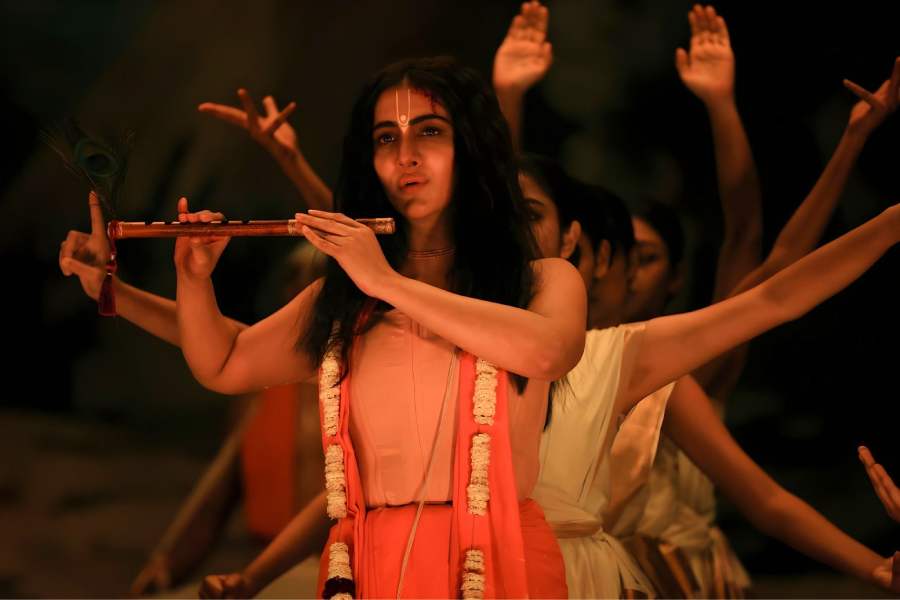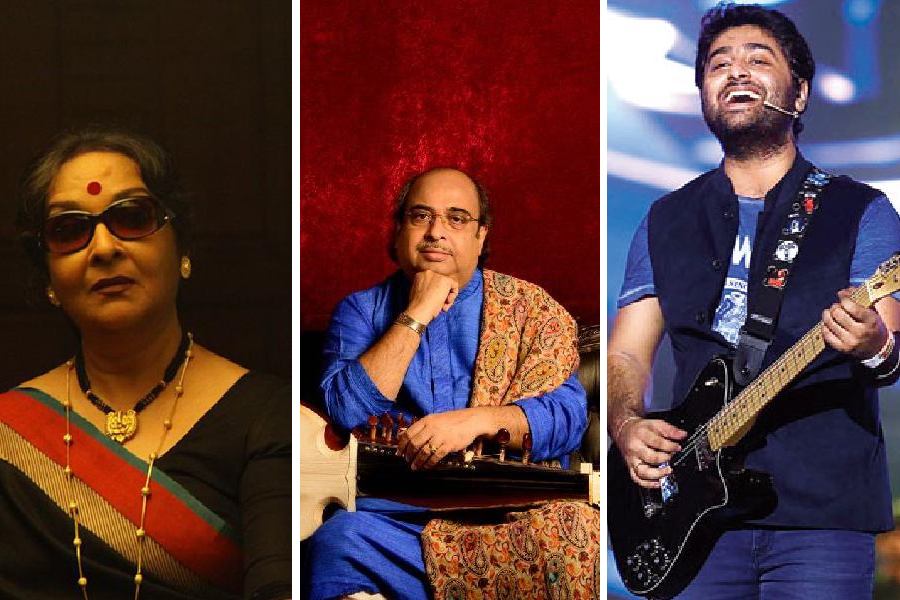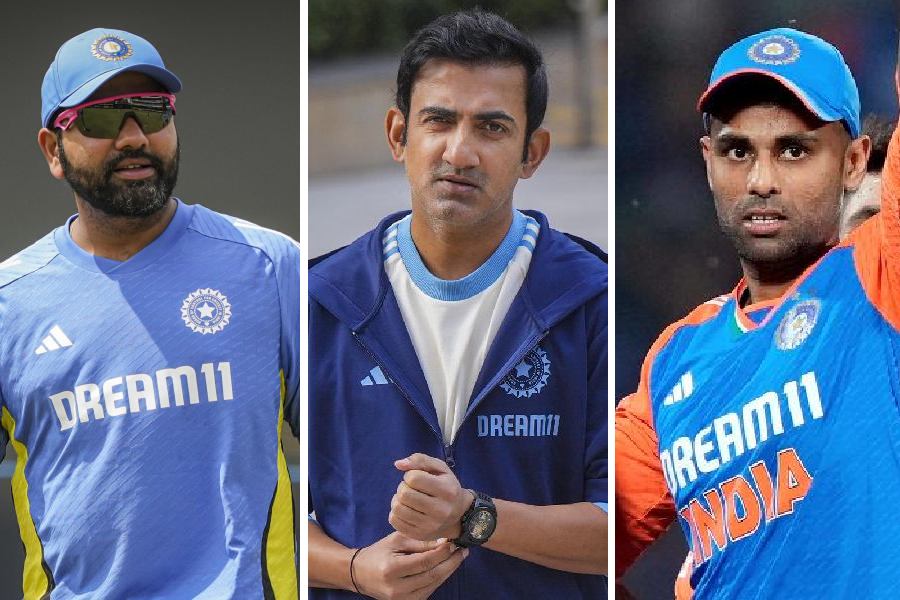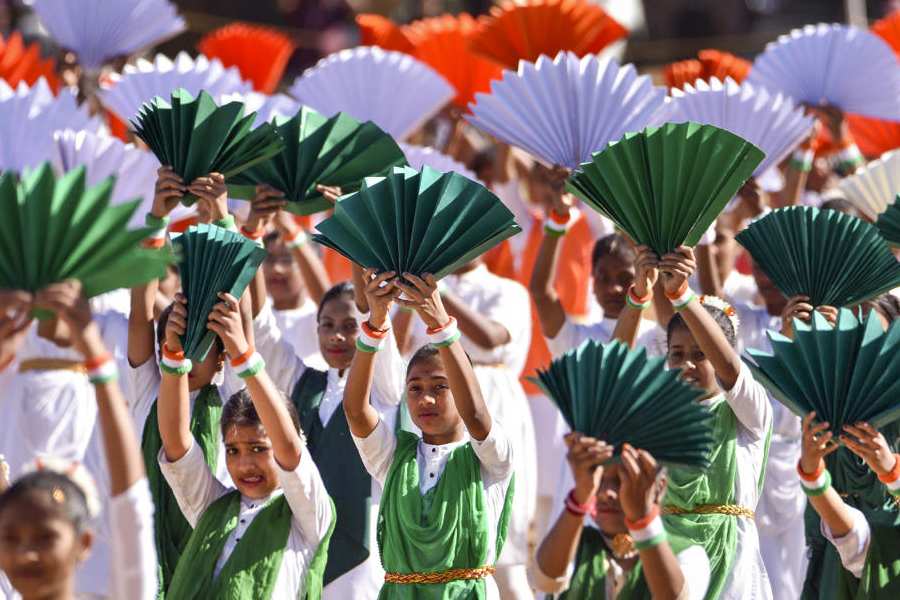Ram Kamal Mukherjee’s Binodiini: Ekti Natir Upakhyan is an ambitious attempt at recreating the life and times of Binodini Dasi, the 19th-century Bengali stage personality who redefined what it meant to be a woman in theatre. Set in colonial Bengal, the film promises a blend of history, art and drama but struggles to rise above its inconsistencies.
The story follows Puti (Swara Bhattacharya), a young girl with a passion for acting, who is introduced to the world of theatre by Golap (Chandreyee Ghosh), a prostitute who sees potential in her. Puti’s rise to fame as Noti Binodini (Rukmini Maitra) is nurtured by Girish Chandra Ghosh (Kaushik Ganguly), the legendary playwright who recognises her talent. From her initial struggles to her eventual stardom, the film charts Binodini’s journey through the lens of her relationships, her ambitions and her place in society.
On paper, the story has everything going for it: a woman struggling to assert herself amid social prejudice, and a culturally rich backdrop. But the execution is uneven, with the performances and the tone sometimes veering towards melodrama.
Rukmini Maitra as the older Binodini is central to the film. Her delivery is often theatrical but she shines in the moments of quiet reflection. Chandreyee Ghosh’s Golap is one of the more compelling performances in the film, though not entirely without melodrama.
Kaushik Ganguly as Girish Chandra Ghosh is arguably the standout act. His portrayal anchors the film, though the dynamic between Girish and Binodini feels underexplored, leaving much of their complex relationship to the audience’s imagination. Om Sahani’s Kumar Bahadur, Binodini’s love interest, is not striking enough to be memorable. Rahul Bose’s Ranga Babu also doesn’t add much to the story.
The performances are further undermined by the modern accents and diction of the actors, which feel out of place in a period drama. Only Chandreyee Ghosh and Rupsha Chatterjee (as Binodini’s friend Kanak) get the accent right.
Visually, the film is stunning. Soumik Halder’s cinematography captures the era beautifully, from the dimly lit crowded backstage corners to the grandeur of the stage performances. But the opulent visuals occasionally feel like a distraction.
The music by Sourendro–Soumyojit is underwhelming. Songs like Kanha (sung by Shreya Ghoshal) and Hori Mon Mojaaye (by Shuchismita Chakraborty) are pleasant but fail to leave a lasting impact.











